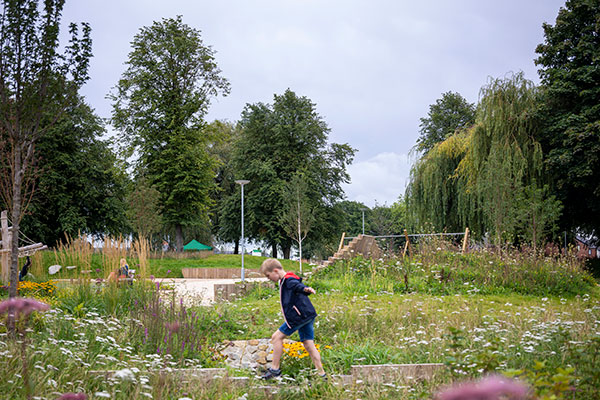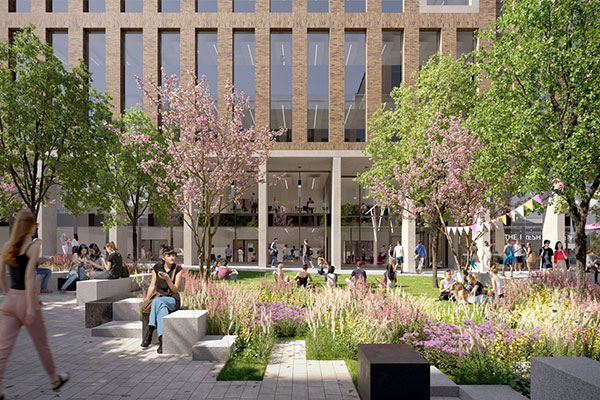Expertise
With our in-house sustainability and design expertise, we work closely with clients to identify sustainability drivers and establish sustainability policies, objectives and targets that respond to the global climate and biodiversity emergency.
In addition, our holistic understanding of the dependencies between urban design and the sustainability agenda ensures our proposals are capable of responding to an ever-changing legislative, economic and technological landscape.
Sitting cross-discipline, our sustainability team possess the specialist expertise to deliver positive social, economic and environmental outcomes as follows:
1. Climate action design framework
Following the development of a clear target-driven and outcome-focussed sustainability brief, we apply our Climate Action Design Framework to the project. The framework covers ten key themes and guides design teams through regenerative design principles that align with the UN Sustainable Development goals.
2. Optimising energy performance and low carbon solutions
We produce sustainability, energy and smart campus strategies, exploring low carbon infrastructure and emerging renewable technologies. We test design proposals to optimise energy performance and drive down embodied carbon.
Through the 8 principles of our Circular Economy Framework, we consider whole life impacts and wider sustainability issues like net zero carbon and health and well-being.
3. WELL standard accreditation
Our consultants use the WELL standard and advanced knowledge of health and well-being principles to meaningfully drive design, placing emphasis on water and air quality, lighting, visual, acoustics and thermal comfort, and additional design features that encourage healthy occupant behaviours including movement and exercise.
4. Healthy spaces
Our ecologists work closely with our landscape and urban designers to implement innovative solutions to create high quality planted/landscaped ‘healthy spaces’ between buildings. In addition to the environmental benefits such as biodiversity enhancement, rainwater attenuation, and acting as vegetative screening for noise and air pollution, these spaces provide a connection to nature, seek to encourage outdoor physical activity, and encourage social cohesion.
5. Social value
Our Social Value Strategy ensures impacts are considered and measured across our projects. We have developed a social value design toolkit which fosters community engagement through co-design and coproduction principles, and measures social value added through design.
Case studies

West Gorton Community Park
Manchester, UK
Our landscape architects designed a new sustainable drainage park for the local community, using an interconnected series of swales, rain gardens and bio-attenuation features.

Sheffield Hallam University masterplan
Sheffield, UK
Sheffield Hallam University campus masterplan is placed at the heart of the city and is a single, sustainable, and flexible campus.
